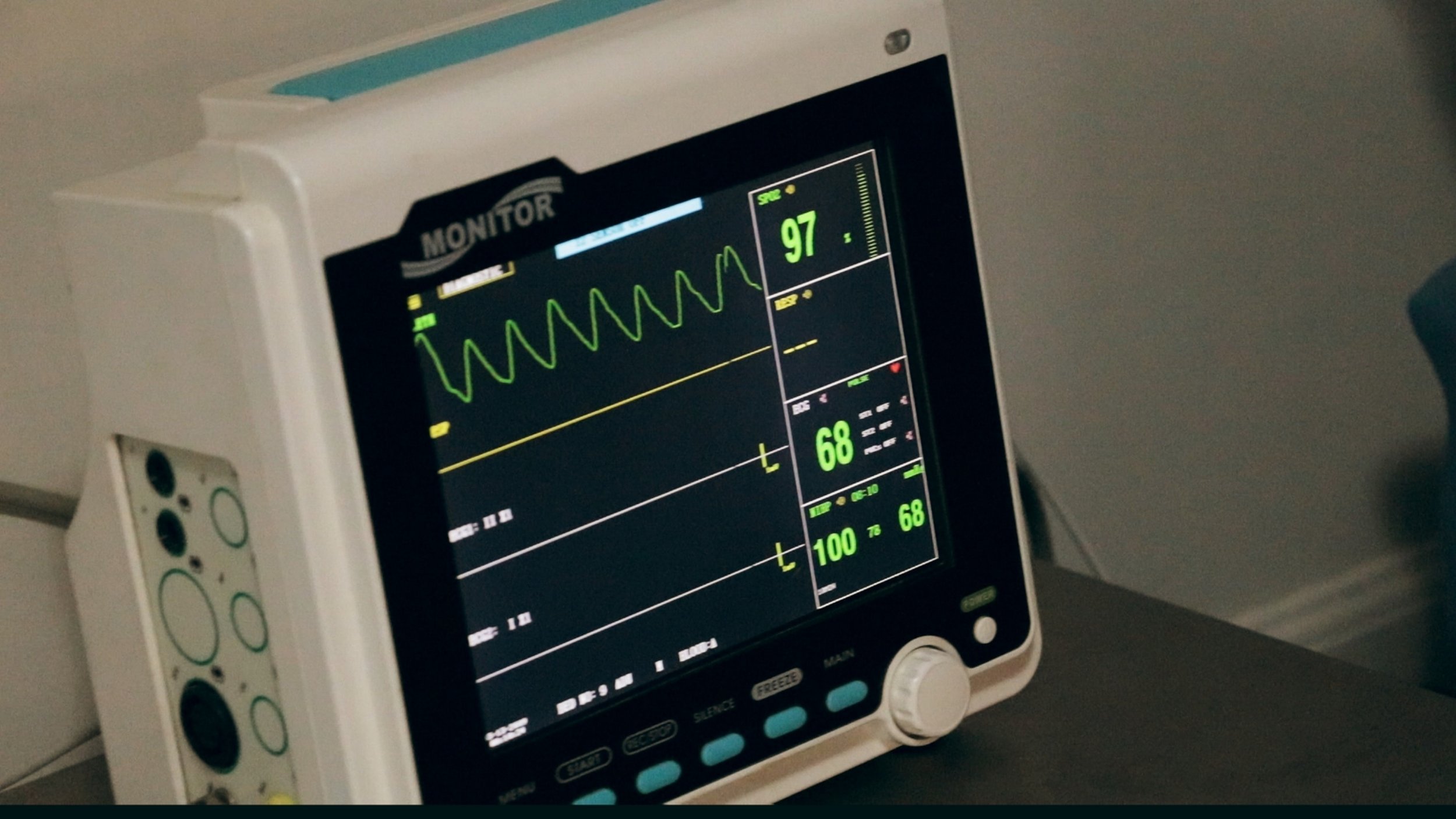Medical expenses can often put a strain on your finances, especially if you have bad credit. Fortunately, there are options available for medical financing that can help you cover these costs. In this article, we will explore what medical loans are, how to qualify for them with bad credit, the best medical loans for individuals with bad credit, and how medical financing can affect your credit score.
What Is a Medical Loan?
A medical loan is a type of loan specifically designed to help individuals cover medical expenses. This can include anything from routine medical procedures to unexpected emergencies. Medical loans are typically unsecured personal loans, which means they do not require collateral.
How Can I Get a Medical Loan?
To get a medical loan, you will need to apply with a lender who offers this type of financing. The application process will typically involve providing information about your income, employment, and credit history. The lender will evaluate your application and determine the loan amount and interest rate based on your creditworthiness.
Are Personal Loans a Good Financing Option for Medical Expenses?
Personal loans can be a good financing option for medical expenses, especially if you have bad credit. Unlike credit cards, which often have higher interest rates and limit the amount you can borrow, personal loans typically offer lower interest rates and allow you to borrow larger amounts.
Can I Use a Medical Loan to Pay Off Medical Bills?
Yes, a medical loan can be used to pay off medical bills. If you have accumulated a significant amount of medical debt, a medical loan can provide you with the funds you need to settle these bills. This can help you avoid collection agencies and protect your credit score.
How Can I Qualify for a Medical Loan with Bad Credit?
Qualifying for a medical loan with bad credit can be challenging, but it's not impossible. While traditional lenders may be hesitant to approve your loan application due to your credit score, there are alternatives available.
What Credit Score Do I Need to Get a Medical Loan?
The credit score requirement to get a medical loan varies depending on the lender. Some lenders may require a minimum credit score of 600, while others may be more lenient. However, even if you have a low credit score, you can still explore options like online lenders, credit unions, or specialized medical financing providers.
Are There Alternatives to Medical Loans for Individuals with Bad Credit?
Yes, there are alternatives to medical loans for individuals with bad credit. One option is to look for medical providers who offer in-house financing or payment plans. These arrangements allow you to pay for your medical expenses over time without the need for a traditional loan.
How Does My Credit Score Impact My Ability to Get a Medical Loan?
Your credit score plays a significant role in your ability to get a medical loan. A higher credit score will increase your chances of approval and may help you secure a lower interest rate. On the other hand, a lower credit score can make it more difficult to qualify for a loan, and you may be offered higher interest rates as a result.
Best Medical Loans for Bad Credit
Despite having bad credit, there are still options available for obtaining a medical loan. Some lenders specialize in providing loans to individuals with poor credit, and they offer competitive terms and rates.
What Are the Top 4 Best Medical Loans for Individuals with Bad Credit?
American Medical Loans - Offers medical loans specifically designed for individuals with bad credit.
Medicredit - Provides medical loans with flexible repayment options and competitive interest rates.
CareCredit - Offers a medical credit card that can be used for a wide range of medical procedures and expenses.
Med Loan Finance - Provides personal loans for medical expenses with easy application and a quick approval process.
How Can I Apply for a Medical Loan with Bad Credit?
To apply for a medical loan with bad credit, start by researching lenders that offer loans to individuals with poor credit. Once you have identified a few options, compare their terms, interest rates, and application requirements. Fill out the application form with accurate and up-to-date information about your financial situation. Submit the application and wait for the lender's decision.
Are There Specific Lenders That Offer Bad Credit Medical Loans?
Yes, there are specific lenders that offer bad credit medical loans. These lenders understand the challenges faced by individuals with bad credit and are willing to work with borrowers to provide them with the financing they need.
How Does Medical Financing Affect My Credit Score?
When you take out a medical loan, it can impact your credit score. Understanding how medical financing affects your credit can help you make informed decisions about your financial health.
Does Taking Out a Medical Loan Impact My Credit?
Yes, taking out a medical loan can impact your credit. Similar to any other loan, your payment history, including any missed or late payments, will be reported to credit bureaus. It is crucial to make all your payments on time to avoid negative marks on your credit report. On the other hand, making regular, timely payments can help you establish a positive payment history.
What Happens If I Can't Pay My Medical Bills?
If you are unable to pay your medical bills, it can have serious consequences for your credit score. Unpaid bills can be sent to collection agencies, and these delinquencies will be reflected in your credit report. It is important to communicate with your medical provider and explore alternative options to address your outstanding balances.
Can I Use Medical Financing to Improve My Credit Score?
While medical financing can help you cover your medical expenses, it does not directly improve your credit score. However, by using medical financing responsibly and making all payments on time, you can establish a positive payment history, which can have a positive impact on your credit score over time.
Conclusion
In summary, medical loans can serve as a vital financial resource for individuals facing unexpected healthcare expenses, offering flexibility and potential solutions even for those with less-than-perfect credit. These loans provide a means to manage medical bills and protect one's credit score.
While personal loans can be a favorable option for medical financing, exploring specialized lenders and medical credit cards can offer tailored alternatives. The key takeaway is that options are available, even in the face of challenging credit circumstances.
It's crucial to understand that a credit score plays a pivotal role in the approval process and interest rates offered, but there are lenders specializing in bad credit medical loans. Responsible use of medical financing can also contribute positively to credit history over time.
In navigating the world of medical loans, borrowers should research lenders, compare terms, and communicate with medical providers to find the best-suited solution for their unique needs. Ultimately, these financial tools can help individuals prioritize their health and well-being without undue financial stress.
FAQs
Q: What are medical loans for bad credit?
A: Medical loans for bad credit are loans specifically designed to help individuals with poor credit pay for medical expenses. These loans can be used to cover the cost of medical treatments, surgeries, dental procedures, and other healthcare-related expenses.
Q: How can I get a medical loan with bad credit?
A: Even with bad credit, you still have options for obtaining a medical loan. You can apply for a personal loan, which can be used to pay for medical costs. There are also specialized medical loans that can be used specifically for healthcare expenses. Although your credit score may impact the interest rate and the loan amount you qualify for, there are lenders who offer personal loans for individuals with bad credit.
Q: What are the alternatives to medical loans?
A: If you have bad credit or are unable to secure a medical loan, there are alternatives to consider. You can explore medical credit cards, which operate similar to traditional credit cards but are specifically designed for medical expenses. Another option is to negotiate with medical providers for a payment plan or to inquire about financial assistance programs that may be available.
Q: How do medical loans impact your credit?
A: Like any other loan, taking out a medical loan can impact your credit. Your credit score may be affected if you have a hard credit pull during the application process. Additionally, if you are late or miss payments on your medical loan, it can negatively impact your credit score. However, if you make timely payments and manage your loan responsibly, it can also have a positive impact on your credit in the long run.
Q: What are the best medical loans of 2023 for bad credit?
A: While it is difficult to predict the best medical loans of 2023 specifically for bad credit, there are lenders who specialize in providing loans to individuals with poor credit. It is best to research and compare lenders to find the one that offers favorable terms, interest rates, and loan amounts for individuals with bad credit.
Q: How can I apply for a medical loan?
A: To apply for a medical loan, you will need to find a lender that offers medical loans for individuals with bad credit. You can start by researching online or reaching out to local banking institutions. Once you have identified a suitable lender, you will need to fill out an application and provide the necessary documentation, such as proof of income and identification, to apply for the loan.
Q: What are the eligibility criteria for bad credit medical loans?
A: The eligibility criteria for bad credit medical loans can vary between lenders. However, common requirements include having a minimum credit score, proof of income to repay the loan, and documentation of medical expenses. It is best to check with the specific lender to determine their exact eligibility criteria.
Q: Can I use a medical loan to pay for medical bills?
A: Yes, a medical loan can be used to pay for medical bills. Whether it is for outstanding medical bills or upcoming medical expenses, a medical loan can provide the necessary funds to cover these costs. However, it is important to carefully consider your repayment ability before taking on additional debt.
Q: What is a bad credit medical loan?
A: A bad credit medical loan is a loan specifically designed for individuals with poor credit who need funds to cover medical expenses. These loans are typically unsecured, meaning they do not require collateral, and may have higher interest rates compared to loans for individuals with good credit.
Q: How do medical loans impact your credit score?
A: Taking out a medical loan can impact your credit score in several ways. Firstly, when you apply for a medical loan, the lender may perform a hard credit pull, which can temporarily lower your credit score. Secondly, if you make timely payments on your loan, it can have a positive impact on your credit score by demonstrating responsible repayment behavior. However, if you are unable to make payments or default on the loan, it can negatively affect your credit score.

![The Best Hospitals in the US [Ranking 2022]](https://images.squarespace-cdn.com/content/v1/58460de0b3db2be79eb5dd93/1652844667928-MFPPXVHSH5C8NRW3G3SZ/imgpsh_fullsize_anim+%2813%29.png)

















